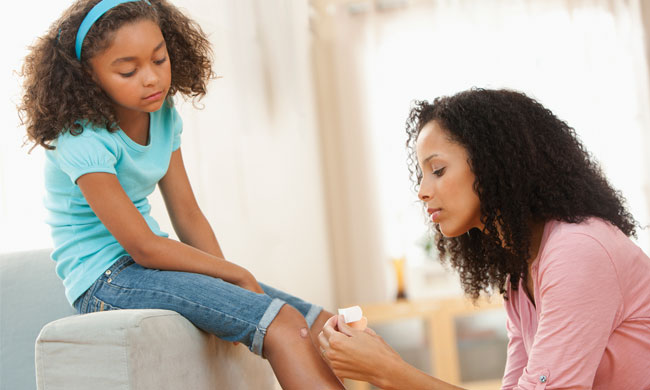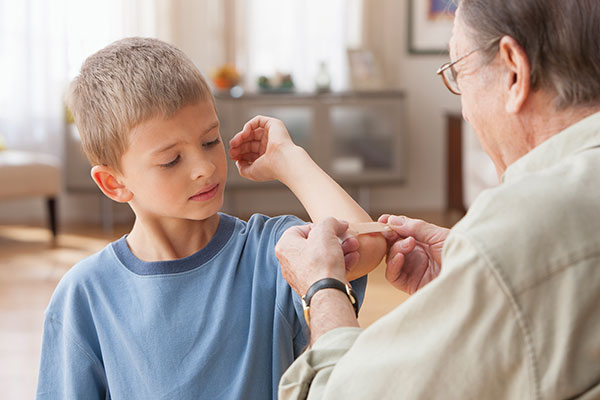5 Natural Wound Care Solutions

For many common ailments or minor injuries, there’s a natural treatment that can be used in place of hard-to-pronounce ingredients and preservatives.
“This same kind of clean ingredient demand is migrating to the first-aid space with many of these natural alternatives being used to treat anything from scrapes and bug bites to wound odor and pulled or sore muscles,” said Dr. Billy Goldberg, a “New York Times” best-selling authorand emergency room physician. “In fact, some companies are beginning to incorporate these kinds of natural and efficacious ingredients right into their products.”
Goldberg and the first-aid experts at CURAD, which have made adhesive bandages since 1951, offer these suggestions for natural ingredients you can use at home to treat common ailments:
 Epsom Salt – Named for a bitter saline spring at Epsom in Surrey, England, Epsom salt is not actually salt but a naturally occurring mineral compound of magnesium sulfate. Long known as a natural remedy for several ailments, Epsom salt can be used to relax muscles and relieve pain in the shoulders, neck and back. It can also be applied to sunburns or dissolved in the bath to help relieve sore muscles or detox.
Epsom Salt – Named for a bitter saline spring at Epsom in Surrey, England, Epsom salt is not actually salt but a naturally occurring mineral compound of magnesium sulfate. Long known as a natural remedy for several ailments, Epsom salt can be used to relax muscles and relieve pain in the shoulders, neck and back. It can also be applied to sunburns or dissolved in the bath to help relieve sore muscles or detox.
Aloe Vera – Few things soothe sunburn like aloe vera. With analgesic, anti-inflammatory and soothing properties that ease the healing process, aloe vera gel contains phytochemicals that help reduce pain and inflammation. Also helpful in the healing process of cuts and scrapes, the CURAD Naturals line of adhesive bandages are infused with aloe vera in the wound pad and surface of the bandage, which is enriched with the antioxidant vitamin E to help soothe and moisturize skin.
Hydrogen Peroxide – A mild antiseptic that can be used to prevent infection of minor cuts, scrapes and burns, hydrogen peroxide is often used for the initial cleaning of wounds. Simply apply a small amount on the affected area – alternating with water to avoid killing good bacteria – to help release oxygen, which causes foaming that aids in cleaning and the removal of dead skin.
Baking Soda – Bicarbonate of soda, commonly known as baking soda, can be used for more than baking. From removing stains to cleaning teeth and more, it can also be used to help treat a variety of wounds. In addition to being an odor absorber, it can be applied to insect stings and bites, such as those from bees or mosquitoes.
Whether making a paste using baking soda and water then applying to the bite or using an option like CURAD Naturals adhesive bandages featuring baking soda, the chemical compound can help soothe the skin. In addition to absorbing wound odor, the bandages provide skin-friendly comfort and stretch with a four-sided seal to keep dirt and germs out.
Manuka Honey – A honey native to New Zealand, manuka honey contains methylglyoxal as an active ingredient and has unique antibacterial properties that speed healing and help prevent and fight infections when applied as a topical wound treatment. It may also help soothe coughs and sore throats, prevent tooth decay and improve digestive issues.
Learn more about natural first-aid products at CURAD.com.
Photos courtesy of Getty Images
CURAD
